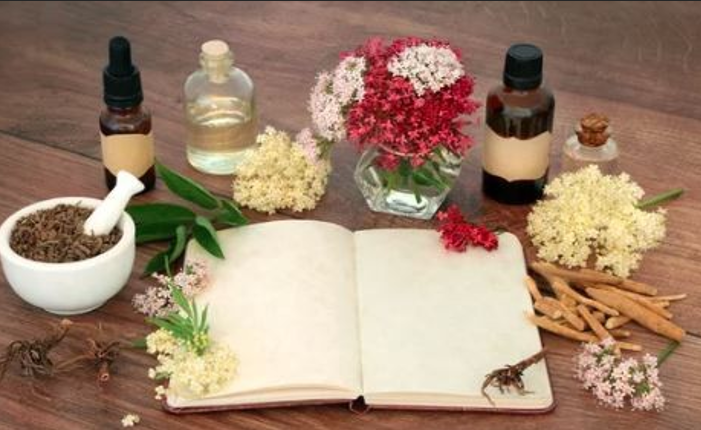Updates
Herbs to Calm Your Mind: Natural Stress Relievers for a Busy Life
Stress is a common problem that affects people of all ages and can lead to a variety of health problems. Fortunately, there are many herbs that can help relieve stress and promote relaxation. In this article, we will explore three herbs that are particularly effective for stress relief.
Ashwagandha is an adaptogenic herb that has been used for centuries in Ayurvedic medicine to help reduce stress and anxiety. It works by regulating the body’s stress response, reducing cortisol levels, and promoting relaxation. Studies have also shown that ashwagandha can improve cognitive function and reduce inflammation.
One study published in the Journal of Ayurveda and Integrative Medicine found that ashwagandha significantly reduced stress and anxiety levels in a group of 64 adults. Another study published in the Indian Journal of Psychological Medicine found that ashwagandha was effective in reducing symptoms of anxiety and depression in a group of 64 adults with a history of chronic stress.
Ashwagandha is available in a variety of forms, including capsules, powders, and tinctures. It is generally safe for most people, but it may interact with certain medications, so it is important to talk to your healthcare provider before taking it .
Chamomile is a gentle herb that has been used for centuries to promote relaxation and reduce anxiety. It works by binding to the same receptors in the brain as benzodiazepines, a class of drugs commonly used to treat anxiety. Chamomile also has anti-inflammatory and antioxidant properties.
Several studies have shown that chamomile can reduce symptoms of anxiety and depression. A study published in the Journal of Clinical Psychopharmacology found that chamomile extract significantly reduced symptoms of generalized anxiety disorder in a group of 57 adults.
Chamomile is most commonly consumed as a tea, but it is also available in capsules and tinctures. It is generally considered safe for most people, but it may interact with certain medications, so it is important to talk to your healthcare provider before taking it.
2 Lavender
Lavender is a fragrant herb that is commonly used in aromatherapy to promote relaxation and reduce stress. It works by interacting with the neurotransmitter gamma- aminobutyric acid (GABA), which helps to regulate anxiety and promote relaxation.
Lavender also has anti-inflammatory and analgesic properties.
Several studies have shown that lavender can reduce symptoms of anxiety and improve sleep quality. A study published in the Journal of Alternative and Complementary Medicine found that lavender essential oil significantly reduced symptoms of anxiety in a group of 40 adults.
Lavender is most commonly used in essential oil form, but it is also available in capsules and teas. It is generally considered safe for most people, but it may interact with certain medications, so it is important to talk to your healthcare provider before using it.
Valerian Root
Valerian root is an herb commonly used to promote relaxation and ease anxiety. It is believed to work by increasing levels of a neurotransmitter called gamma-aminobutyric acid (GABA) in the brain, which has a calming effect on the nervous system. Valerian root can be taken as a tea or supplement, and it is often used as a natural sleep aid as well.
One study published in the Journal of Ethnopharmacology found that valerian root extract significantly reduced symptoms of anxiety in rats, and that the effects were similar to those of the anti-anxiety medication diazepam (Valium). Another study, published in the Journal of Phytotherapy Research, found that valerian root extract was effective at reducing symptoms of anxiety in humans, and that it had fewer side effects than benzodiazepine medications.
Valerian root is generally considered safe when taken as directed, but it can cause side effects in some people, including dizziness, headaches, and upset stomach. It may also interact with certain medications, so it’s important to talk to your healthcare provider before taking valerian root if you are on any prescription medications.
Overall, valerian root is a promising herb for those looking for natural ways to reduce anxiety and promote relaxation. While more research is needed to fully understand its effects, it may be a helpful addition to a comprehensive approach to stress management.
Conclusion
Stress is a common problem that can have serious implications for health and well- being. Fortunately, there are many herbs that can help relieve stress and promote relaxation. Ashwagandha, chamomile, lavender and valerian root are just a few examples of herbs that are particularly effective for stress relief. If you are experiencing stress, consider trying one of these herbs to help you feel more relaxed and calm.
However, as mentioned earlier, it is always important to talk to your healthcare provider before using any new herbs, especially if you are taking medications or have a medical condition.
1. Chandrasekhar, , Kapoor, J., & Anishetty, S. (2012). A prospective, randomized double-blind, placebo-controlled study of safety and efficacy of a high- concentration full-spectrum extract of ashwagandha root in reducing stress and anxiety in adults. Journal of Ayurveda and Integrative Medicine, 3(3), 111-114. URL: https://www.ncbi.nlm.nih.gov/pmc/articles/PMC3573577/
2. Pratte, M. , Nanavati, K. B., Young, V., & Morley, C. P. (2014). An alternative treatment for anxiety: a systematic review of human trial results reported for the Ayurvedic herb ashwagandha (Withania somnifera). Journal of Alternative and Complementary Medicine, 20(12), 901-908. URL: https://www.ncbi.nlm.nih.gov/pmc/articles/PMC4270108/
3. Cooley, , Szczurko, O., Perri, D., Mills, E. J., Bernhardt, B., Zhou, Q., … &
Seely, D. (2009). Naturopathic care for anxiety: a randomized controlled trial ISRCTN78958974. PLoS One, 4(8), e6628. URL:
https://www.ncbi.nlm.nih.gov/pmc/articles/PMC2729375/
4. Koulivand, H., Khaleghi Ghadiri, M., & Gorji, A. (2013). Lavender and the nervous system. Evidence-Based Complementary and Alternative Medicine, 2013, 1-10. URL: https://www.ncbi.nlm.nih.gov/pmc/articles/PMC3612440/
5. Bradley, B. F., Brown, S. L., Chu, S., & Lea, R. W. (2009). Effects of orally administered lavender essential oil on responses to anxiety-provoking film Human Psychopharmacology: Clinical and Experimental, 24(4), 319-330. URL: https://onlinelibrary.wiley.com/doi/full/10.1002/hup.1016
6. Miyasaka, L. S., Atallah, Á. N., & Soares, B. G. (2006). Valerian for anxiety Cochrane Database of Systematic Reviews, 2006(4), CD004515. URL: https://www.cochranelibrary.com/cdsr/doi/10.1002/14651858.CD004515.pub2/fu ll



















